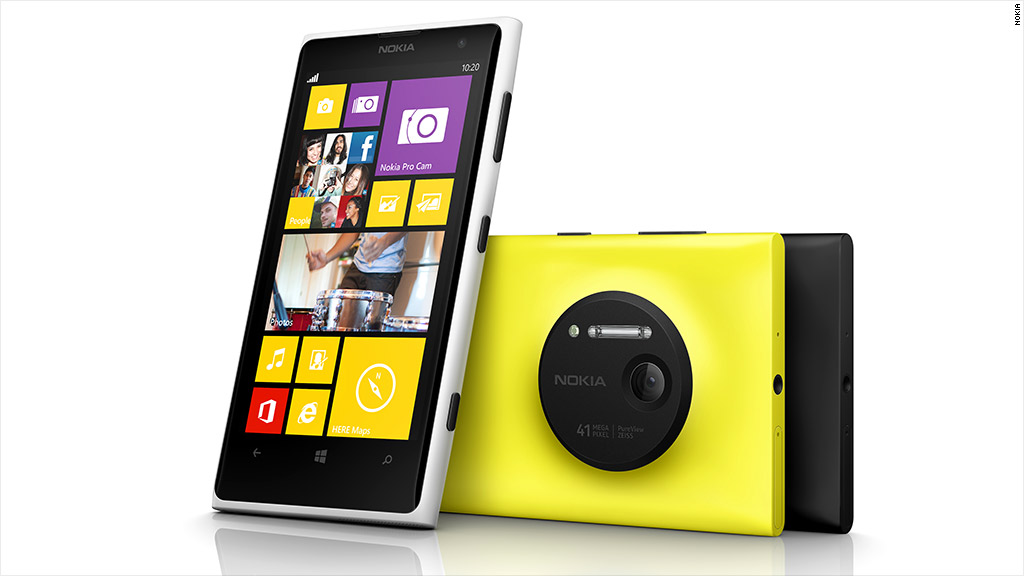
Microsoft bought Nokia's phone division because both companies were out of other options.
After sinking $300 million dollars into a Windows Phone partnership with Nokia (NOK) in early 2011, Microsoft (MSFT) still finds itself scrapping for mobile market share. No phone manufacturer other than Nokia wants to make anything resembling an interesting Windows Phone handset.
Meanwhile, Nokia has lost €3.3 billion ($4.3 billion) over the past eight quarters and is rapidly losing relevance in the mobile market it once led for 14 straight years.
The companies need one another.
At this point, Microsoft has invested too much and its position is not dire enough to simply give up on mobile. Saddled with an unenthusiastic group of other third-party partners, purchasing Nokia gives Microsoft the freedom to release new smartphones on its own terms.
But its close partnership with Nokia isn't the only reason -- or maybe even the main reason -- why Windows Phone hasn't succeeded.
When Microsoft released its revamped Windows Phone platform in 2010, the company set itself up for failure in its attempt to achieve two incompatible goals: Like Google's (GOOG) Android, Microsoft wanted Windows Phone to power a wide range of third-party devices. Like Apple (AAPL), Microsoft wanted to exercise tight control over how its software was used, and the type of hardware it would run on.
You can't have it both ways.
Related story: Microsoft to buy Nokia's phone business for $7.2 billion
Once phone manufacturers hit the upper limit of Microsoft's rigid, but modest, hardware requirements, there was very little they can do to differentiate their devices from the competition, aside from improving the camera and the design. Every Windows Phone device was essentially the same, and partners had to wait for the next big Microsoft update to make better smartphones.
That's not going to cut it in today's cutthroat smartphone market. Phone makers like Android, because Google's mobile platform gives them myriad ways to differentiate their products. Android provides smartphone makers the freedom to make devices much faster than rivals' phones. They can customize the software until its hardly recognizable from the competition. Or they can experiment with size until it resonates with the right niche audience.
Apple doesn't license its iOS software, so it has no one to worry about except itself. That means Apple can gleefully intertwine its hardware and software until it arrives at a singular, highly optimized experience.
In a world where the Windows Phone platform is a minor player -- commanding less than 4% of the smartphone market, according to IDC -- Microsoft's smartphone strategy simply didn't give its partners hope for launching a commercially successful Windows Phone device.
But then there's Nokia, which made a big bet to live or die by Windows Phone. Its phones, as it turns out, have been quite good. Not only do Nokia's handsets have the best cameras, but the rest of the hardware is also high quality and attractive.
Even if Nokia only commands a tiny fraction of the smartphone market, the company's products serve as a good foundation for Microsoft to build on.
Microsoft says its still committed to third-party partners. Given its current market position, of course it is. But that's easy to say when there's minimal third-party support to begin with. Even if Microsoft burns bridges with its Nokia acquisiton, the effects felt will likely not be consequential.
With Nokia fully under its control, Microsoft finally follow a smartphone strategy that makes sense: Like Apple, Microsoft can focus on combining hardware and software, and the rest of the Microsoft product ecosystem to produce a focused and singular vision.
It just might be too late.

